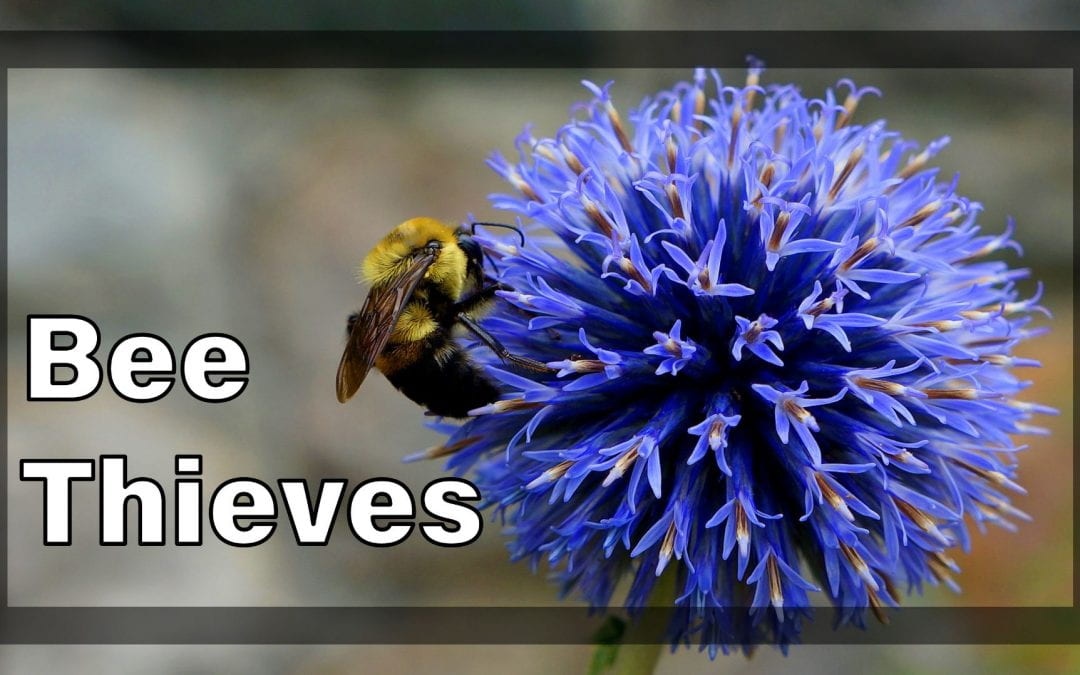This may seem like a joke, but beehive theft and black market bees are on the rise as crops like almonds grow in demand. At the same time, bee colonies are contracting in growth due to Colony Collapse Disorder. And these are proper heists as well, not crimes of opportunity! They are meticulously planned out and done in the dead of night typically. Because the thieves are wearing beekeeper suits in most cases, few people would call the cops on them because they look like they belong there. All across the country, reports have been coming in on an almost weekly basis of new thefts, often involving tens of thousands of bees and thousands of dollars of lost revenue, unpollinated fields, and lost bees.
This semi-recent trend is due to the rise of commercial beekeeping, in which a beekeeper relies on renting out the hives to farmers for pollination, instead of relying on pure honey production. This has driven the economic value of bees through the roof, and now thieves with the technical knowhow are stealing the hives at night. And this is a worldwide phenomenon as well, not just an American one. In New Zealand, home of Manuka Honey “aka liquid gold- bottles go for 60$ or more”, there have been over 2000 reported hive thefts, some of which have been linked to organized crime.
Another kick in the teeth for beekeepers can be hive vandalism and hive destruction. There have been several high profile cases, one in Iowa and one in Texas recently, where hundreds of bees were killed in acts of vandalism. And even more recently, in England, endangered bees were killed by vandals. While much rarer than theft, this is far more devastating because not only is the equipment destroyed, the bees also die, meaning that there is a loss to the entire ecosystem and may put endangered subspecies at a higher risk of extinction. Do you or someone you know keep bees? We want to hear your story! Pace University’s Pace Docs crew is in the process of producing a documentary about Urban Beekeeping, the latest in a series of award-winning environmentally and culturally relevant documentaries from our department. Contact us at paceudocs@gmail.com. And follow us on Instagram, Facebook, Twitter, and Tik Tok for more content!

